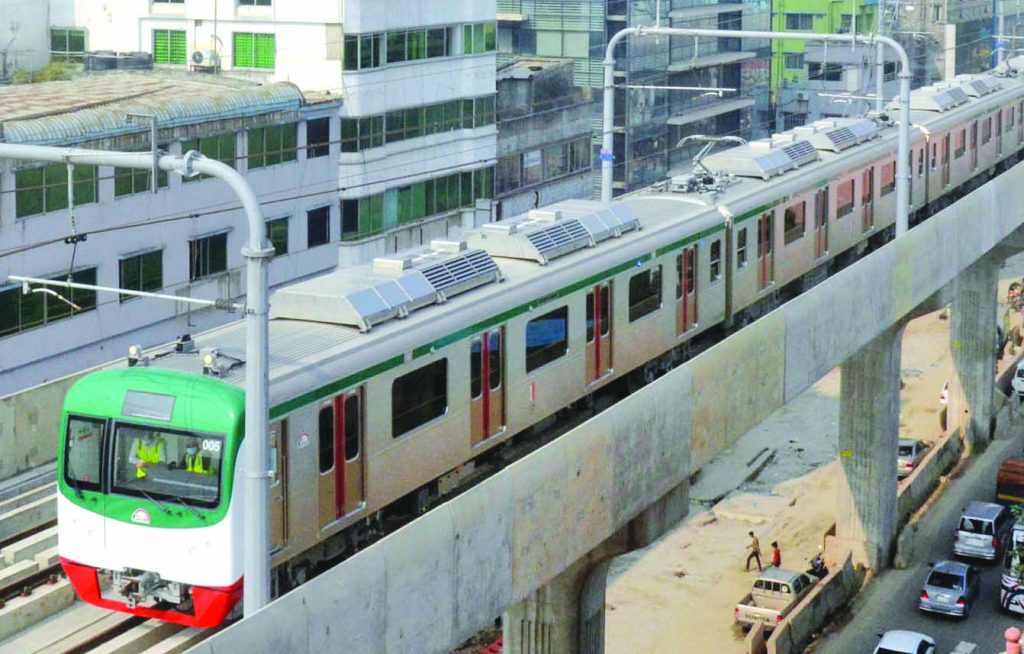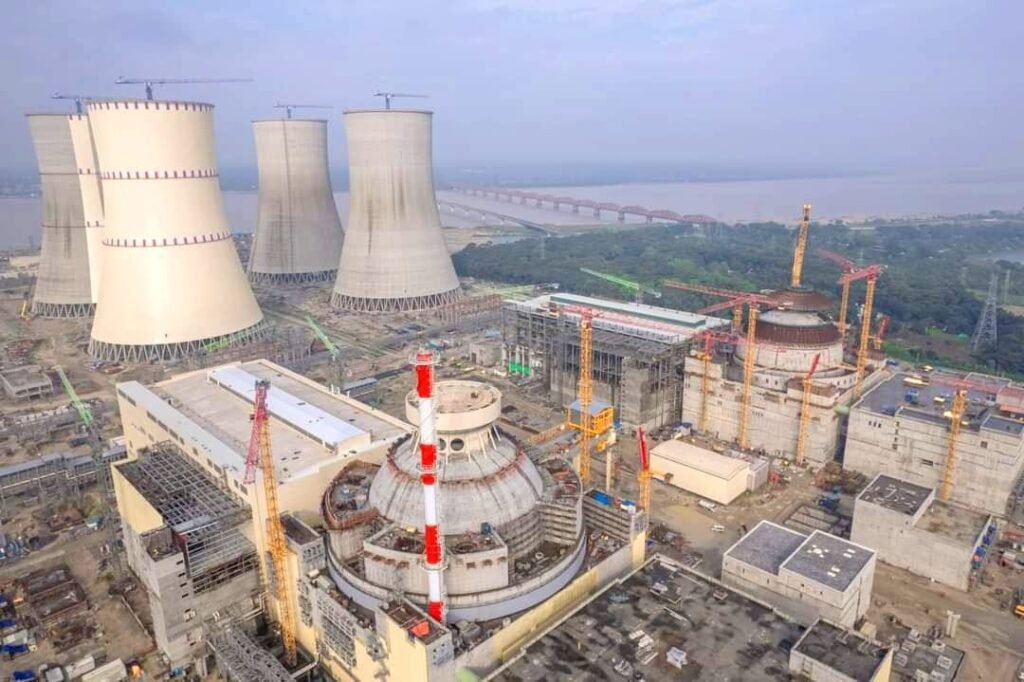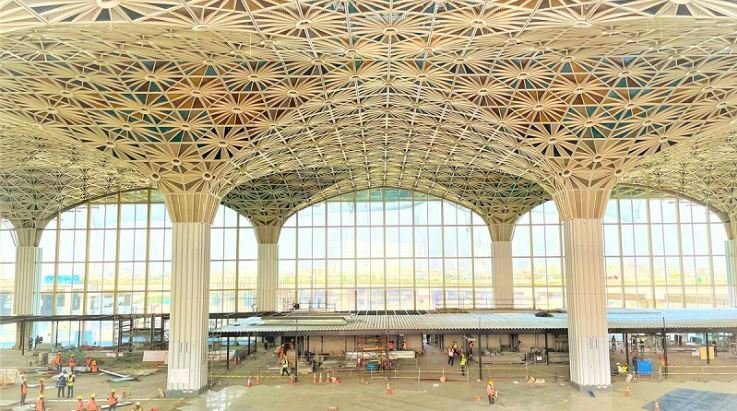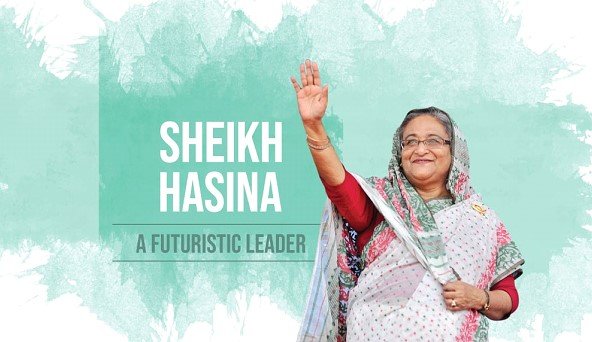As Prime Minister Sheikh Hasina, the world’s longest-serving female leader, enters the campaign trail for an extraordinary fifth term, the recent fruition of these massive projects, designed to strengthen the nation’s economic strength and improve the lives of its people, is poised to exert a significant impact on voters’ decisions
Bangladesh’s economic ascent is nothing short of remarkable. Presently ranked 34th globally, its trajectory is set to be even more astonishing. By 2036, it is poised to climb to the 24th position, propelling itself forward as a burgeoning economic powerhouse. The ultimate crescendo awaits in 2040, when Bangladesh is projected to emerge as the ninth-largest consumer nation on the planet. These ambitions, while lofty, are well within reach. The GDP is forecasted to soar from the current US$460 billion to a staggering US$1 trillion, provided there are no significant obstacles along the way.
You Can Also Read: Sheikh Hasina: A Beacon of Leadership and Diplomacy
This nation has embarked on an ambitious journey, marked by a myriad of development projects, many of which fall under the category of mega projects. Bangladesh is determined to transcend its LDC status, strategically sowing the seeds for a sustainable future. The trump card in this endeavor is the prioritization of ‘fast-track projects,’ with a prime example being the inauguration of the 82-kilometer Padma Bridge Rail Link, a monumental milestone. This monumental infrastructure endeavor, unveiled under the able guidance of Prime Minister Sheikh Hasina, promises to be a game-changer. It is directly impacting the lives of 80 million people and injecting a remarkable 1.5% boost into the nation’s economic growth.
A decade of transformation
The current government assumed office in 2009. They initiated a multitude of colossal construction projects with an unwavering commitment to overhaul the nation’s electricity, transportation, and communication infrastructure. The results are already evident, with some mega projects successfully concluded and others progressing steadily.
Notable among these are the Padma Bridge Rail Link, the elevated expressway, the Metro Rail, the third terminal of Hazrat Shahjalal International Airport, and the Rooppur Nuclear Power Plant, all of which have received the official inauguration blessings from PM Sheikh Hasina herself. These ventures are geared toward a two-fold objective: modernizing the existing physical infrastructure and nurturing an ideal environment for business. The aim is to render the country exceptionally attractive in terms of economic returns and secure investments.





In a world of rapidly shifting economic landscapes, Bangladesh has distinguished itself as the second-fastest-growing major economy. It finds its place on the IMF’s coveted list of “next eleven” emerging market economies and is hailed as a frontier market. The anticipated climb in economic rankings is not just a statistic; it signifies Bangladesh’s unwavering determination to transcend economic boundaries and become a global economic powerhouse. These visionary aspirations are underpinned by concerted efforts over the past decade to ensure that its ‘flagship projects’ are executed with precision and timeliness. This concerted push aims not only to reinforce Bangladesh’s position but also to beckon foreign investors with the promise of tangible benefits – logistical support and a business-friendly climate.
Soaring economic growth: Surpassing neighbours and global projections
Financial Times columnist, Benjamin Parkin, recently lauded Bangladesh’s current leadership for its extraordinary journey towards progress, transforming a nation once mired in poverty into a resounding success story. He noted that despite the recent uptick in inflation, Bangladesh’s economy continues to stand tall as one of the fastest-growing in Asia. A substantial part of this success is attributed to the thriving textile export sector.
Remarkably, the world’s second-largest garment industry, surpassed only by China, has provided a lifeline, lifting millions from rural destitution into higher-paying urban livelihoods. Over the last 15 years, this concerted effort has managed to slash poverty rates in half, bringing them down to around 20%. As Benjamin Parkin’s illustrative graph vividly showcased, Bangladesh’s economic growth has outpaced not only its neighbors, Sri Lanka and India, but also far exceeded global expectations.
This remarkable journey, however, is not without its concerns. Parkin advises Bangladesh to diversify its economy, currently over-reliant on clothing exports, accounting for approximately 85% of its economic activity.
Looking ahead to the 12th national parliament election, political observers in Bangladesh foresee the country’s megaprojects as the ruling party’s trump card. The monumental Padma Bridge, a gift to the nation, played a pivotal role in the 12th National Assembly elections. By linking the capital to 21 southern districts, it ensured a seamless and cost-effective supply of raw materials, a critical catalyst for industrialization. This enhanced connectivity doesn’t just translate into reduced travel time for individuals but also fosters a broader spectrum of trade opportunities and paves the way for increased economic activity. The Asia Foundation’s August survey affirmed the public sentiment, with the $3.6 billion Padma Bridge, inaugurated just last year, being hailed as “Bangladesh’s most important success.”
‘Electricity for all’ becomes a reality
The resonating slogan “Electricity for all” championed by the current administration is becoming a reality. The Rooppur nuclear power plant project and the Matarbari 1200 MW coal-fired power station project are well on their way to ensuring that every corner of the nation is electrified. The inauguration of the first unit of the Matarbari coal-fired power plant in Maheshkhali, Cox’s Bazar district, is imminent, set to kickstart operations in December. With its promise of swift port service and seamless connectivity, this port is poised to bolster cross-border commerce, unlocking new avenues for economic growth and prosperity. As the momentum surges, Bangladesh’s ascent to greater heights remains undeniable.
Last month, in September, the prime minister took a decisive step in addressing traffic congestion by inaugurating an 11-kilometer elevated expressway, providing much-needed relief to the capital city and its environs. A landmark moment approaches on October 28, 2023 when she unveils the Karnaphuli tunnel in Chattogram, marking a historic first among South Asian countries and thrusting Bangladesh into the tunnel age. In another visionary stride, her government is set to initiate a direct rail link connecting Dhaka to Cox’s Bazar, a move that promises to revolutionize transit not only for the everyday commuter but also for the burgeoning tourism industry.
PM Sheikh Hasina’s fifth-term bid
The anticipation is that these ground-breaking initiatives, visible in their full glory before the next elections, will captivate the imaginations of young voters and cast a shining halo over the political landscape. This mosaic of accomplishments is destined to reshape the dynamics of electoral politics. Noteworthy author Benjamin Parkin, echoing this sentiment, underscores the electoral dimension of these grand projects.

As Prime Minister Sheikh Hasina, the world’s longest-serving female leader, embarks on her campaign for an unprecedented fifth term, Parkin believes that the recent completion of these colossal ventures, aimed at fortifying the country’s economic prowess and enhancing the well-being of its citizens, will wield profound influence over the voters’ choices. The infrastructure transformation constitutes a fundamental aspect of the message that Sheikh Hasina conveys to the electorate in the lead-up to the January national elections.
This concise analysis offers a tantalizing glimpse into the nation’s imminent growth trajectory. Yet, what stands paramount at this juncture is the unequivocal need to ensure that any potential electoral unrest is quelled without compromise. The significance of these “high-yielding projects,” which are sculpting both society and the environment by harnessing “economies of scale,” cannot be overstated. These initiatives, already positively impacting millions, might bestow an electoral advantage upon the incumbent administration, as citizens place their trust in the party’s ability to navigate the nation toward a prosperous future under this leadership. Bangladesh, on the brink of a transformative era, is poised to script a resounding success story.


